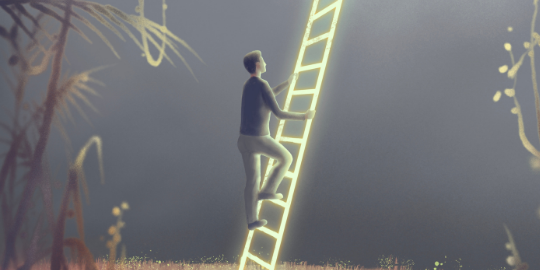Level Up.
- The purpose of college is to pursue financial security for his family.
- After a brief stint in international business, Ryan switched to education.
- While he enjoyed connecting with students, he knew he couldn’t earn enough as a teacher
- So, he devised a plan to become superintendent.
- Ryan’s plan detailed how he would move from one level to the next
- He was offered his first teaching job at the local deaf magnet school
- He successfully completed his master’s during his 4th (out of 5 mandatory years) years at Parkview and started applying for administration jobs in that 5th year.
- 18 months into his assistant principal job he started applying for principal jobs.
- When he accepted the principal position, he knew there was major work to be done to ensure he continued to be successful in leveling up.
- During his principalship, Ryan held and led others in the belief that if a teacher worked hard enough, they could have 100% of their students be proficient on state standards.
Ryan and Objectivity
- Throughout his career, Ryan had this desire to create connections for students and educators.
- While wanting others to connect in this vulnerable way, he was unable to meet their vulnerability.
- Many educators hold themselves in similar capacities of longing for connection but presenting themselves as objects.
- Additionally, Ryan was so focused on the plan, that opportunities for anything outside of it didn’t make much sense.
- Finally, there was too much risk in experiencing affect and it going negatively.
- So he stuck to the plan and used his strategies to be of service in these temporary roles.
Finding Subjectivity
- Regardless of how hard he worked, how much time he spent away from his family, how perfect his strategy was, he was unable to reach 100% proficiency in student scores.
- Racked with shame, he had to let go of the object he’d polished for so long.
- Ryan was forced to choose between gritting his teeth and bearing it for the next 20 years or creating a new object.
- So, he spent a lot of time strategizing on what might that other object be and how to provide for his family.
- He had to divorce himself from the dream he’d been chasing, the plan he’d been working.
Reflection
“What I’ve learned is there is no strategy to meet that goal. There’s no single strategy that does that. The thing that has the capability of doing that is through connection, one to one, human to human, authentic, subjective connection.”
- Further, maybe inviting someone into vulnerability and having an impact on them is greater than what any strategy could offer.
- Maybe seeing the human, caring and showing positive regard, and loving them for who they are and who they aren’t, is more powerful than teaching them the strategy to help them meet the objective they think they need to meet.
Beyond Healing Center
Beyond Healing Media
Interested in supporting a child?
- https://www.patreon.com/BurntOutEducator
- 100% of the proceeds contributed to the Burnt Out Educator will support providing therapy for a child in the public school system.
- Not therapy capped at a certain number, but an open-ended relationship with a highly qualified therapist in the BHC network.



